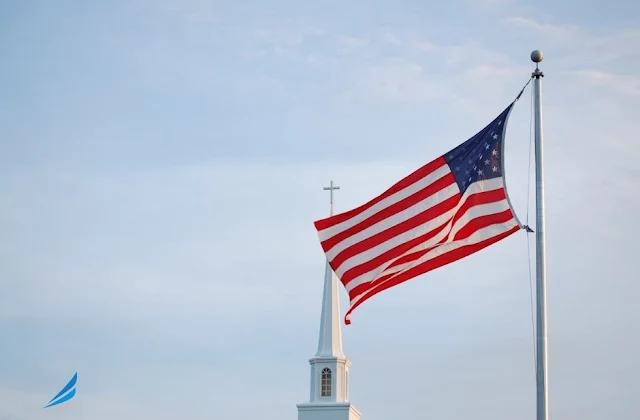Shocking Statistical Changes
The statistics are striking. According to recent surveys, the percentage of Americans identifying as Christian has plummeted from around 90% in the 1970s to approximately 65% today. Meanwhile, the "religiously unaffiliated" – including atheists, agnostics, and those who describe themselves as "nothing in particular" – have surged from less than 10% to nearly 30% of the population.
This shift isn't merely about changing labels. Church attendance has declined dramatically, with many once-vibrant congregations struggling to maintain membership. Young adults, in particular, are leaving the faith at unprecedented rates, creating a generational gap that causes deep concern among religious leaders and Christian families.
Cultural and Social Challenges
Unfortunately, several cultural shifts have contributed to Christianity's decline in America. The spread of individualism has led many to view organized religion as restrictive rather than liberating. In an era that prioritizes personal autonomy and self-expression above all else, traditional Christian teachings are increasingly perceived by some as outdated or oppressive.
The sexual revolution and radical changes in attitudes toward gender roles have created deep rifts between Christianity and modern society. Many younger Americans find themselves in direct conflict with biblical Christian teachings on sexuality, marriage, and gender identity. As society becomes more accepting of diverse lifestyles and relationships, Christianity is often misunderstood as a barrier to social progress.
The Impact of Education and Science
The expansion of higher education continues to be associated with the weakening of religious belief, which is deeply concerning. As more Americans pursue college education, they are exposed to critical thinking methodologies and scientific explanations that challenge Christian worldviews.
The perceived conflict between science and faith is also forcing many believers into difficult choices. While many Christians successfully harmonize scientific understanding with their beliefs, others feel pressured to choose between religious doctrine and scientific evidence, particularly regarding contentious topics like evolution and climate change.
Digital Age Challenges
The emergence of the internet and social media has fundamentally changed how information spreads and communities form. The development of the internet and media has led to people's indiscriminate exposure to various worldviews and values, significantly weakening the influence of traditional Christian values that have long been cherished.
While local churches and Christian communities once served as primary guides for faith and life, people can now easily access diverse philosophies, religions, and lifestyles from around the world, leading to questions about Christianity's fundamental teaching as the only truth.
Traditional religious authority structures are also facing serious challenges from the unrestricted accessibility of information. When anyone can independently research theological questions or find online communities that support their doubts, the spiritual authority of pastors and church institutions is naturally being undermined.
The Devastating Impact of COVID-19
The COVID-19 pandemic dealt a decisive blow to the already declining trend in church attendance. Lockdown measures and social distancing during 2020-2021 forced many churches to close or drastically limit attendance. During this period, online worship became normalized, leading many people to become accustomed to the convenience of worshiping from home and feeling less need for church community.
Even after the pandemic eased, a significant number of congregants have not returned to church, and for younger generations especially, it became an opportunity that instilled the false confidence that they could live without a faith community. The suspension of in-person fellowship and community activities has also resulted in the unfortunate weakening of precious bonds with the church.
Serious Generational Divide
Most concerning is the stark generational divide in religious belief. Millennials and Generation Z are significantly less likely to identify as Christian than their parents and grandparents. This isn't simply a matter of young people being temporarily less religious – historical data shows that today's young adults are far less religious than previous generations were at the same age, which is deeply troubling.
The importance of religion and faith among young people has declined markedly, and the rapid increase in the non-religious population is shocking. Currently, more than one-third of American youth are not affiliated with any religion, and this trend is accelerating the decline of the Christian population. Simultaneously, the higher mortality rate among elderly generations who had deep faith is naturally reducing the proportion of Christians, creating a double burden.
These younger generations have grown up in increasingly secular environments, with significantly reduced social pressure to respect religious norms and values. They also tend to prioritize personal authenticity and subjective experiences over biblical truth and church authority, leading them to too easily question and abandon the precious faith inherited from their ancestors.
Future Challenges
For Christian communities, this trend presents serious challenges while also being opportunities that must be embraced. Some churches are adapting by emphasizing social justice, community service, and inclusive theology. Others are seeking new ways to connect with contemporary audiences while holding more firmly to unchanging biblical teachings.
The future of Christianity in America depends on how wisely churches and religious institutions can respond to rapidly changing cultural conditions without compromising their core faith identity. This must include humbly listening to legitimate criticisms, increasing transparency, and demonstrating the relevance and power of the Gospel even in an increasingly secular society.
Conclusion
The decline of Christianity in America reflects broader changes in society, culture, and technology. While this trend causes deep concern among religious leaders and faithful believers, it appears to be part of fundamental changes in how Americans understand spirituality, authority, and the meaning of life.
These changes reflect deep-rooted shifts in American societal values, and the future of faith will be determined by how Christian communities respond to this crisis. They stand at a crucial crossroads: whether to firmly uphold traditional biblical teachings or succumb to the pressures of modern society and compromise.
The story of Christianity's decline in America is still unfolding. How churches and religious communities respond to these challenges will determine whether this represents a temporary trial or an irreversible turning point in American Christian history.


